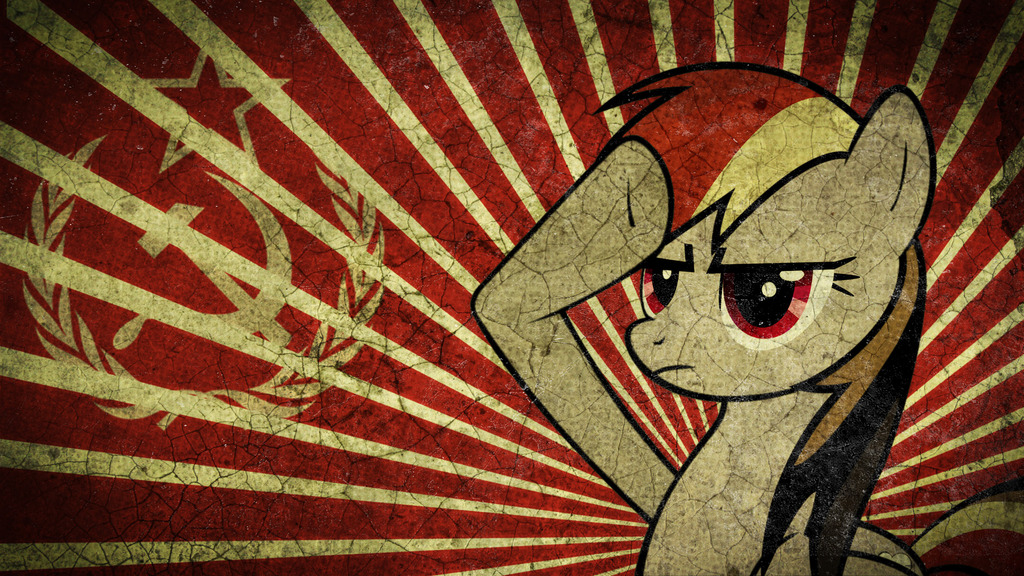Let’s say that the many, many people who are needed to do (relatively) unskilled labor such as restaurants, factory, retail, etc. are not needed to do those jobs anymore due to them being fully automated.
It’s relatively easier to automate those sorts of jobs, but what about the ones that require much more skill: doctors, lawyers, plumbers, electricians. These would take more time to automate compared to the more basic jobs. So when these basic jobs are all lost due to automation, but the skilled ones are remaining, what would a communist/socialist society do to solve this?
Would they force some people to learn how to do these needed jobs in case of a shortage? Would they allow the unemployed masses to survive without labor? What do you think?
There will be no unemployed masses. Unemployment is a feature of capitalism, which needs a reserve army of labour. Even under the strained conditions of the USSR, there was full unemployment. As tech makes jobs redundant, communists would divide the remaining work equally rather than keeping a select few working 40–90 hours a week while they’re colleagues get sacked ‘because they’re no longer needed’.
For a snapshot, think about a family with young children. (I apologise in advance to any three year olds who have learned to read already and are logged in to Lemmygrad – this comment isn’t about you.) Toddlers aren’t very useful. But they are keen. A toddler can contribute in the kitchen, washing the salad or decorating the cake while the adult does the hot, sharp, and heavy tasks.
It’s a choice to keep the toddlers away from the work. (The same people who make that choice will likely be the ones to wonder, twenty years later, why their adult children don’t know how to use a washing machine, but I digress.) In many families, the chores will be divided among the adults and the toddlers, even if it’s an unequal division. From each according to their ability, to each according to their need.
No need to force anyone. By the time we get there, at least three things will have happened, assuming it’s communists who get us there.
(1) Work really does set you free. Just not under capitalism. Through socialism and communism, consciousness will change. People will start to see work not as a forced activity, but as a way of contributing to society. Some people already see it this way. In communism it will be true. People will need to get psyched up for some jobs, I’m sure, but they won’t need to be forced. Plus the remaining shit jobs can be rotated.
As for jobs that can be automated, like cheffing and retail, people enjoy that work in the right conditions and I can see some people choosing to do these jobs even if they can be automated. There’s pride involved and others like to be part of that. E.g. who’d go for a microwave meal if Gordon Ramsey is offering to cook? And who’d dress themselves if a tailor is offering to suit them up? Things will change under communism. It’s hard to know what. But some things will stay the same for a long time to come.
(2) What child, even in capitalism, does not aspire to be a highly skilled medic, sparky, joiner, lawyer, etc? As high quality education becomes truly universal, this becomes a reality. Everyone can train for the remaining jobs, with support (no more bad grades because students can’t do the work because they have to work 40 hours a week hoping to earn enough tips to keep the lights on).
Even today, parents would jump at the opportunity to send them to a school where their kids will be taught to be doctors. This is just a fantasy for most people in capitalism, though.
(3) Changing social relations will radically change the nature of work. Most lawyers will become redundant. Who needs contract, commercial, property, and tort lawyers? Look at New Zealand. It compensates anyone for accidents. No need to sue. Their negligence lawyers hated it at first because they mostly became redundant over night (they’ve since wormed their way back in a bit, though).
There will be more medical work once medicine is accessible to people who currently can’t afford it. There will also be less medical work once we move to a preventive model. Almost every plumber and electrician that I know quite enjoys their job. What they don’t like is shit hours and shit pay for getting covered in, well, shit. Working conditions will improve under a DotP.
Much respect and support for toddler comrades🫡
The real vanguard.
I wouldn’t be classifying labour as skilled or unskilled. Labour is Labour. That said, I think the premise has changed. In the past, one would think that automating manual labour would be easier, however, as of right now, I believe this has changed drastically. Jobs that require a long study time, but not much manual intervention such as lawyers, doctors (not surgeons), journalists, accountants, etc might end up being replaced by AI. I personally believe that these jobs are more at risk with the advent of AI than other more manual jobs.
Powerful points. I’ve even heard of some automated surgery. It’s not far off if it’s not here already. And you don’t have to worry if the hospital has forced the surgeon into work for their 36th hour straight due to budget cuts.
deleted by creator
The theory is mixed but there’s a branch of Marxist legal theory following Pashukanis. This branch argues that law is dialectically related to capitalism. It’s known as the commodity form theory of law. The idea being that the institution of law will dissolve with the state as it cannot survive the abolition of commodity production. In simpler terms: there is only law where commodities are produced, so there will be no law in communism.
To add a subtlety back into the equation: this does rely on a rather technical concept of law. Pashukanis argued that rules will be dealt with in the same way that train timetables are dealt with under capitalism (not US train timetables; they’re a fitting metaphor for bourgeois law). There’s no room for argument. The train turns up on schedule and if you arrive on time you can get on board.
Perhaps AI will be the end of the profession that will eventually see law itself become redundant. Development of material forces leading inexorably towards communism and all that.
I can see AI achieving that kind of smooth system. This is already starting to be implemented. But I think the bourgeoisie will intervene to crush that possibility, eventually, even if it binds the rest of us. The ruling class would lose many of its advantages without human lawyers. Not least the ability to pay for counsel to find interpretative loopholes (while poor litigants are left open mouthed to learn that X can mean Y).
deleted by creator
If robo lawyers get to a point where they’re as good or better than human lawyers and porky is still in control of the state, why would they get rid of robo lawyers entirely instead of just limiting workers’ access to them?
There’s a little to unpack here. The profession must be distinguished from the institution of law. And the implied notion that law is about fairness and justice must be challenged.
I don’t disagree that people will use tech to their advantage. If the rich can afford to use more tech, for more advantages, of course they’re going to do it.
Simply_surprise suggested the law profession was at risk of being replaced with AI. I agree.
I responded that law itself will not survive the revolution to communism. It will exist during socialism.
I’m not 100% sure what you’re asking. I didn’t say that the bourgeoisie would want to abolish robo lawyers.
I think the idea of robo lawyers may be a bit futuristic. Al can be used to automate tasks, such as contracting, buying land, etc. This already exists. But AI cannot replace human lawyers because law itself won’t exist if there are no humans involved.
A central feature of law is the rule of law, which entails formal equality. The law as a profession and as an institution cannot stand any denial of this formal equality. It is part of the bedrock.
Formal equality is one foundation of a system that turns any dispute into a legal dispute. Including political disputes.
This is one of the central functions of human rights law. This is part of the system by which workers are convinced to litigate and ask for human rights protections, within the confines of the legal system, which forecloses political awareness and political action. The bourgeoisie is not going to undermine this system easily. Although the bourgeoisie isn’t always that bright, so they may do so by accident. But if workers don’t turn to law, they’ll turn to direct action and politics, and the bourgeoisie does not want that.
Just to be clear, law is not a universal phenomena. It can and will be dissolved as an institution. Pashukanis predicts that this will happen during the transition to communism. The bourgeoisie could dissolve law by accident and get us halfway there, in the same way that concentrating the proletariat while creating a huge reserve army of labour will create a force powerful enough and the incentive to overthrow capitalism.
You’re possibly suggesting that rich people will use AI lawyers while the poor are not granted access? That already happens but, again, workers cannot be denied outright without threatening the legal system itself. Even now, if Sally sues Amazon, Amazon is sending a $10,000s retainer to it’s legal team before Sally’s sole lawyer sends her a $1,000 bill. The legal team will use AI if there’s an advantage to the partners of the firm. Workers don’t need to be denied if they’re simply out-spent. And doing it this way means we can all keep pretending that the legal system upholds fairness and justice, which it never has and likely never will.
I’m not 100% sure what you’re asking. I didn’t say that the bourgeoisie would want to abolish robo lawyers.
My comment was directed at this from your previous comment:
I can see AI achieving that kind of smooth system. This is already starting to be implemented. But I think the bourgeoisie will intervene to crush that possibility, eventually, even if it binds the rest of us. The ruling class would lose many of its advantages without human lawyers.
However, looking back at that comment I think I may have misunderstood what you were saying. I thought “crush[ing] that possibility” was the use of AI lawyers, but a second look at your comment I originally replied to as well as your response to me makes me think that the possibility that is being crushed is instead the streamlining of law to be more cut and dry and less opaque to reason about, reducing or even eliminating the need for people trained in legalfu. To retain power, the state would either require writing legislation in a way that outlines how workers are to be fucked without the veil of inscrutable esoteric legalese or make fair laws only to flagrantly violate them. This would make the bourgeois legal system the proverbial emperor with no clothes, undermining the air of legitimacy required for the human rights law trickery you outlined to work, among other things.
If that’s what you were getting at, I agree with you.
That’s a good way to put it. I think we agree. And I could have been clearer!
Mmm, “unskilled labour” is a myth. Particularly when you take productivity into account - all these jobs that are called “unskilled” must, under capitalism, be performed at a certain rate to be profitable to the capitalist. And that rate only increases over time. So you quickly end up in a situation where your “unskilled” labourer - fruit picker, say - is forced to work at a ridiculous pace using highly specialised skills and ridiculous amounts of endurance and dexterity, all at minimum wage.
The brits got to discover this via fields of rotting produce when they decided to stop letting in fruit pickers from the EU, bless.
As socially necessary labor is reduced, leisure time and liberty increase for everyone. More time for learning, more time for people to provide for their neighbors, more time for research and development.
Society, through some mechanism, will provide incentives for these jobs. We will make it easier to learn these jobs, easier to execute these jobs. People who still work will probably get festival days in their honor. Their jobs will be supported by a network of people who reduce the stress and strain. Some jobs may become communally executed instead of individually executed, in order to maintain quality, continuity, and support.
New IT advancement did create new jobs with low-skill demand, but those jobs were outsourced to former European colonies with puppet corrupted authoritarian governments that aligns with NATO so the Capitalist oligarch can profit from slavery and monopolies. In an example, radiologists in healthcare had not suffer job displacement from the introduction of algorithms that can scan and interpret radio images; instead, their job just become more focused on communication with clients and selection of algorithms for analysis of radio images.
Probably art and theory and so on. Have people go to school longer. Diversify the economy and provide redundancy. Move the economy in directions where people can remain productive.
This is one area where speculative fiction can do a reasonable job of opening the mind to possibilities. Iain M Banks, Alastair Reynolds, Ken MacLeod, Elizabeth Bear - just picking a few recent reads - all have sketches with some relevance to your questions, for instance.
Also worth remembering that work and “jobs” would look rather different in a communist society to the kind of things we have at present. For a start, hours can be much less, and the content of the work would be less degrading. That works wonders all by itself.
The model I like - which is different to saying if it’s likely or not - is work as sport. If you imagine a position like “economic planner”, for instance - and you might imagine that a lot of these would be needed in a communist society, and that we might struggle to automate the position away - it seems compelling to me that some people would want to do this for the challenge it would provide to them, and that more people would want to do it than there are positions.
Out of that, rather quickly, amateur leagues and tournaments with the prize being “you get to be the planner for X” arise, at least in my head.
Why would people do these things as a sport? Well, for the same reasons people do amateur sports at the moment. Fun, prestige, group belonging, etc.
Prestige is interesting to dive into, particularly as it relates to jobs like doctors. The social position of a Cuban doctor is quite different to that of a “western” one, for instance. Definitely worth digging into more.




